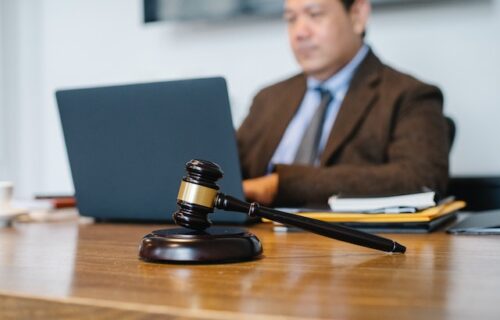
A premises liability case occurs when a victim suffers injuries on someone’s else property due to the property owner’s negligence. In court, negligence is when someone fails their civic duty of minimizing harm to others and subsequently causes a dangerous accident that leaves victims injured. An example would be if someone fell down a hazardous stairwell because the property owner didn’t fix or rope off the area. When it comes to compensation for a premises liability victim, it matters whether the victim was considered an invitee or a licensee on the property. Read this blog to learn what this means and how one of our New Jersey Premises Liability Lawyers might be able to help you!
WHAT ARE AN INVITEE AND A LICENSEE IN PREMISES LIABILITY CLAIMS?
Both invitees and licensees are similar in that both parties are technically invited onto the owner’s property, unlike a trespasser who unlawfully breaks onto a person’s private property. In court, an invitee is someone who was explicitly or implicitly invited onto a property with the owner’s permission, usually for business purposes. Customers of a store are considered invitees because the storeowner expects customers to visit. Anyone you hire to perform work on your house would also be considered an invitee.
Meanwhile, a licensee is someone who has permission to be on the property but for their own social purposes. This includes houseguests and unsolicited salesmen that aren’t trespassing. Property owners generally expect both licensees and invitees to enter their property, meaning they have a responsibility to keep their premises safe for others.
Examples of invitees include:
- Shoppers in a store
- Hotel guests
- Customers in a restaurant
- Contractors hired to work on a house
- A delivery person
Examples of licensees include:
- A guest visiting a friend’s house
- A guest at a party
- Someone who went into a store just to use the bathroom
- Neighbors dropping by
- Door-to-door salespeople
- Religious missionaries
WHY DOES IT MATTER?
While it may seem like there is little difference between an invitee and a licensee, the distinction is vital in the courtroom. This is because whether or not you are eligible for compensation depends on why you were on the owner’s property. If you’re considered an invitee and are injured on the property, you may have a valid claim if the hazard wasn’t outwardly obvious/avoidable and the owner knew or should have known about it. Licensees must meet the same criteria, but they can only earn compensation if the owner didn’t warn them about the hazard. Essentially, property owners have a higher duty owed to invitees than to licensees.
Have you recently been injured on someone else’s property due to the owner’s negligence? Are you seeking an effective personal injury attorney who has your best interests in mind? Look no further because Rubenstein, Berliner & Shinrod, LLC is here to fight for you! Contact our highly experienced team today for an initial consultation to learn more about our high-quality, individualized legal counseling.
